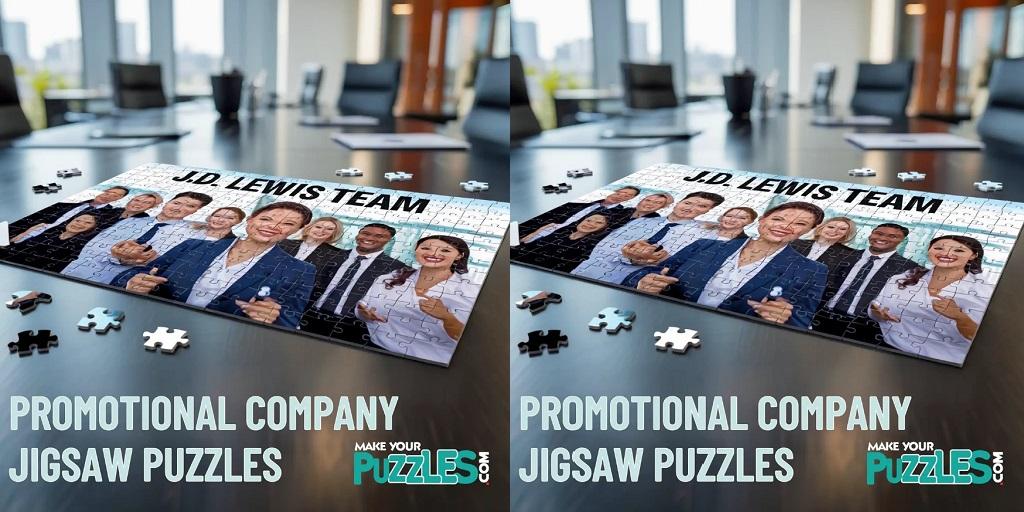We live in a swipe culture where most brand interactions are digital, fleeting, and forgettable. A notification buzzes, a post scrolls by, a logo flashes, and it’s gone. That’s why brands that dare to slow things down are the ones people actually remember. And nothing slows down attention quite like touch.
Tactile gifts — objects that engage the senses — have quietly become the antidote to digital fatigue. Among them, promotional puzzles stand out for one simple reason: they invite your audience to interact with your brand in the most literal sense. Every turn, every connection, every small “aha” moment translates to deeper emotional recall than a dozen email campaigns ever could.
Touch Is Memory’s Shortcut
It’s not just sentiment — it’s science. Studies in consumer psychology show that physical interaction improves retention because the brain encodes experiences more deeply when multiple senses are engaged. In short, we remember what we touch.
That’s what gives promotional puzzles their quiet power. They turn brand exposure into a multi-sensory experience. When someone picks up a puzzle piece, they’re not just looking at your brand; they’re feeling it — its texture, weight, and structure. That combination of sight and touch activates stronger memory pathways, meaning your brand stays top of mind long after the last piece is in place.
Unlike pens or notebooks that fade into everyday clutter, puzzles require deliberate attention. They invite focus — the rarest commodity in today’s business landscape.
Engagement That Can’t Be Scrolled Past
Every puzzle demands patience, curiosity, and satisfaction — three emotions that marketers spend fortunes trying to replicate through screens. But the difference here is authenticity. Completing a puzzle feels earned, not automated.
That tactile participation shifts how people perceive your brand. You’re no longer just a name on packaging; you’re part of an enjoyable process. A puzzle doesn’t shout for attention — it earns it. And when a gift requires time and engagement, the recipient associates your brand with positive emotion and reward.
This is where the long-term payoff lies: deeper recall, warmer sentiment, and genuine connection.
The Emotional Life of Objects
Corporate gifts often fail because they lack narrative. A water bottle says “hydration,” a notebook says “productivity,” but a puzzle says something entirely different — “take a moment.”
It’s an invitation to slow down, think, and connect — both literally and emotionally. That small act of piecing something together taps into satisfaction and nostalgia, two emotional triggers that strengthen memory. When a client or team member spends time with a gift like this, they aren’t just interacting with a brand; they’re creating a micro-experience they can feel.
In an age when attention spans are shrinking, tactile experiences become the new emotional currency. That’s what makes puzzles not just gifts, but memory builders.
A Longer Shelf Life for Your Brand
Most branded items are consumed, discarded, or forgotten within weeks. A puzzle, though, lingers — on desks, coffee tables, or breakroom shelves. It becomes part of a space, something people revisit. Each time someone reassembles it or points it out to a colleague, your brand re-enters the conversation naturally.
It’s slow marketing done right: meaningful repetition without intrusion. Your brand becomes tied to a sensory memory, not a transaction.
That’s the kind of longevity even premium ads struggle to buy.
From Hands to Heart
The strongest brands today are the ones that feel personal — the ones that create experiences worth remembering. That’s the secret behind tactile gifting: it’s not about logo visibility, it’s about emotional visibility.
And when a brand can connect touch, thought, and emotion in one quiet gesture? That’s where loyalty begins.
If your next client gift or team giveaway needs to leave a real impression — one that can be felt, not just seen — start with something made to last. Explore MakeYourPuzzles.com and turn your next gesture into a hands-on memory worth keeping.
Because the gifts people remember most aren’t the ones that sparkle — they’re the ones they can touch.


Join our community to interact with posts!